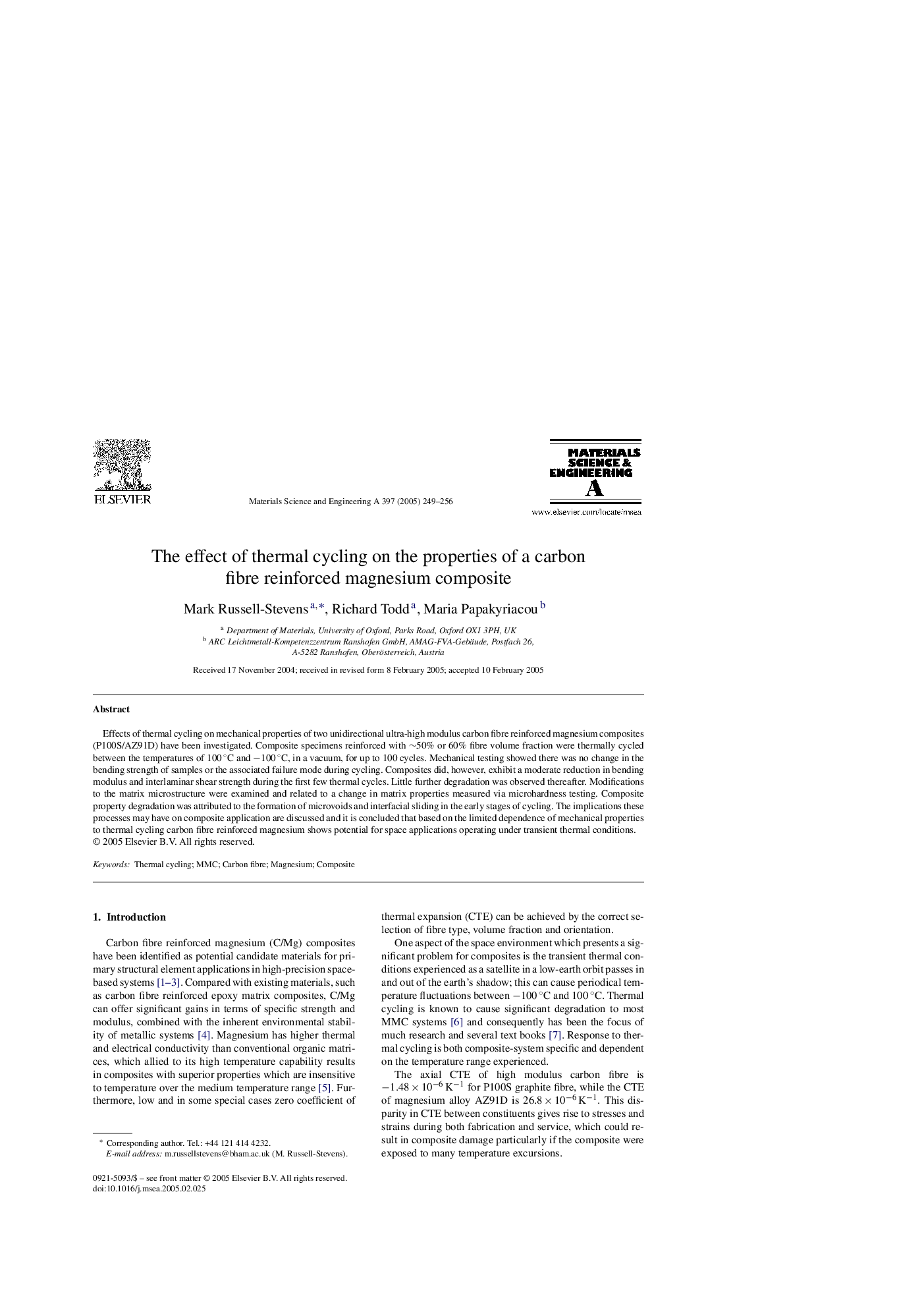| Article ID | Journal | Published Year | Pages | File Type |
|---|---|---|---|---|
| 9796294 | Materials Science and Engineering: A | 2005 | 8 Pages |
Abstract
Effects of thermal cycling on mechanical properties of two unidirectional ultra-high modulus carbon fibre reinforced magnesium composites (P100S/AZ91D) have been investigated. Composite specimens reinforced with â¼50% or 60% fibre volume fraction were thermally cycled between the temperatures of 100 °C and â100 °C, in a vacuum, for up to 100 cycles. Mechanical testing showed there was no change in the bending strength of samples or the associated failure mode during cycling. Composites did, however, exhibit a moderate reduction in bending modulus and interlaminar shear strength during the first few thermal cycles. Little further degradation was observed thereafter. Modifications to the matrix microstructure were examined and related to a change in matrix properties measured via microhardness testing. Composite property degradation was attributed to the formation of microvoids and interfacial sliding in the early stages of cycling. The implications these processes may have on composite application are discussed and it is concluded that based on the limited dependence of mechanical properties to thermal cycling carbon fibre reinforced magnesium shows potential for space applications operating under transient thermal conditions.
Related Topics
Physical Sciences and Engineering
Materials Science
Materials Science (General)
Authors
Mark Russell-Stevens, Richard Todd, Maria Papakyriacou,
